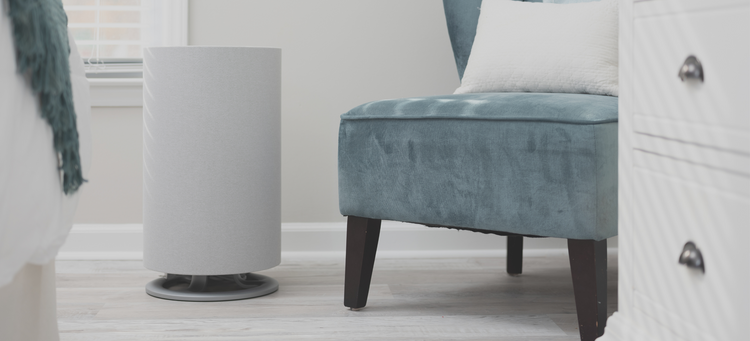Purifying Air in Small Spaces in Winter
However, by using the best air purifiers for small spaces in winter, you’ll have clean air no matter what the weather!
Keeping Your Air Clean: The Winter Challenge
Why is winter such a problem for air purification?After all, pollen season is usually in the spring, and the summer heat and dryness can create a lot of dust. Even fall has dry air with a lot of dust; it seems like winter should be a time to ease up on air purification.
No one is opening their windows in the winter in the US for a prolonged period of time. The cold air in the winter means there is almost no indoor ventilation or air conditioning, and therein lies the problem!
Not all air pollution comes from the outdoors. In fact, there are many indoor air pollutants that are from materials and household product. VOCs, for example, are one of the top concerns from the Environmental Protection Agency.
During the summer, for example, you can open the windows and let in fresh air, assuming of course that the outside weather is not too hot. You can do the same in fall and spring, at least on the warm afternoons or mornings.
During winter in cold climates, this is simply not a possibility. During these months, the home stays closed, so all those indoor air pollutants stay indoors.
Can Plants Help Your Winter Indoor Air?
Before diving into the best air purifiers for small spaces, you should know that there are other ways to clean the air in your home. For instance, you can use houseplants in part to purify the air.Plants can absorb air through tiny pores on the surfaces of their leaves. They take in the air and use it as part of their photosynthesis. This is the process that turns light into usable energy.
When plants pull in air, they use the CO2, also known as carbon dioxide, to conduct the photosynthesis; however, while they are pulling in CO2, they are also pulling in air molecules floating in the air. This means that a plant will also pull in some toxins and other harmful chemicals and microscopic molecules that are floating in your home.
Amazingly, this little trick was discovered by NASA, who was experimenting with plants and oxygen production. What they discovered was that plants not only release oxygen, they take in some airborne particles and filter toxins.
While not the most effective way to clean your air, it’s now believed that plants can help keep our air free of toxins.
For more information on how plants filter toxins, and which plants you should use in your home, read this helpful article.
The Best Air Purifier for Small Spaces in Winter
mod jr. Air Purifier
The mod jr. air purifier is one of our best options for providing clean air indoors. This air purifier will give you more cleaning square footage (878 sq ft.) than you might need, but it doesn't hurt to have a stronger machine running at a lower speed in a small area.
The mod jr. is still a lightweight purifier at 18 lbs and relatively short at 22 inches tall. This is a very quiet machine (20-56 dBA) especially at its lower settings, which would be perfect for a smaller space.
The mod jr. can remove allergens, VOCs, dust, bacteria, pollen, mold spores, pet dander, and airborne viruses making it a great purifier to clean your indoor air in the winter.
Where to Place Air Purifiers in Small Living Areas
So where should you place that wonderful air purifier you just purchased for your small space?There are a few places you can choose, but you should look for a good compromise between somewhere out of the way and somewhere with good air flow.
First, let’s talk about placing it somewhere out of the way.
If you are using an air purifier in a small space, you’ll have to choose a place where it won’t be in a path where people usually walk. If you have a regular path from the front of the room to the bed, for example, you certainly don’t want the air purifier in the way.
Also, in small spaces, you don’t have a lot of room to spare, so you’ll want to place the air purifier in a remote corner or in a space that is too small for other furniture.
You’ll also need good air flow. While the air purifiers have a fan that generates air flow, you want to make sure the expelled air isn’t blocked. An open path will allow the purified air to reach the common space.
For example, you don’t want to place the air purifier behind a couch, as this will restrict air flow from the purifier.








